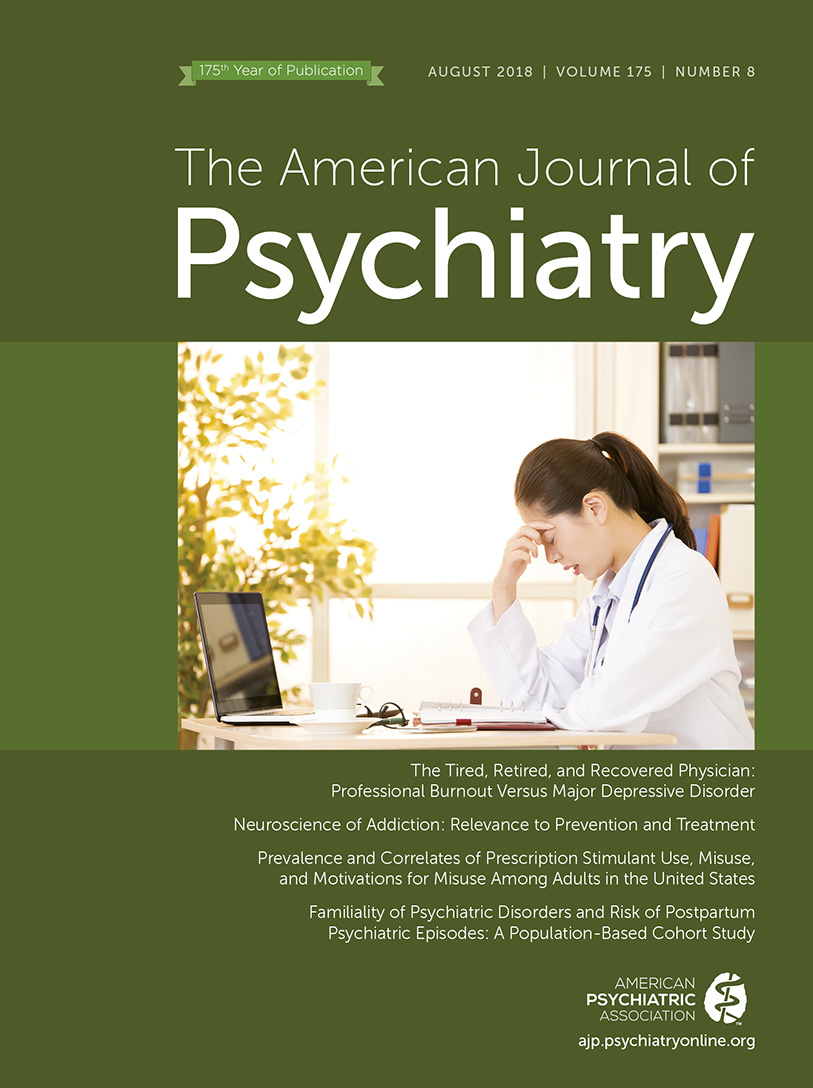Epigenetic Aging in Major Depressive Disorder
Abstract
Objective:
Major depressive disorder is associated with an increased risk of mortality and aging-related diseases. The authors examined whether major depression is associated with higher epigenetic aging in blood as measured by DNA methylation (DNAm) patterns, whether clinical characteristics of major depression have a further impact on these patterns, and whether the findings replicate in brain tissue.
Method:
DNAm age was estimated using all methylation sites in blood of 811 depressed patients and 319 control subjects with no lifetime psychiatric disorders and low depressive symptoms from the Netherlands Study of Depression and Anxiety. The residuals of the DNAm age estimates regressed on chronological age were calculated to indicate epigenetic aging. Major depression diagnosis and clinical characteristics were assessed with questionnaires and psychiatric interviews. Analyses were adjusted for sociodemographic characteristics, lifestyle, and health status. Postmortem brain samples of 74 depressed patients and 64 control subjects were used for replication. Pathway enrichment analysis was conducted using ConsensusPathDB to gain insight into the biological processes underlying epigenetic aging in blood and brain.
Results:
Significantly higher epigenetic aging was observed in patients with major depression compared with control subjects (Cohen’s d=0.18), with a significant dose effect with increasing symptom severity in the overall sample. In the depression group, epigenetic aging was positively and significantly associated with childhood trauma score. The case-control difference was replicated in an independent data set of postmortem brain samples. The top significantly enriched Gene Ontology terms included neuronal processes.
Conclusions:
As compared with control subjects, patients with major depression exhibited higher epigenetic aging in blood and brain tissue, suggesting that they are biologically older than their corresponding chronological age. This effect was even more profound in the presence of childhood trauma.



